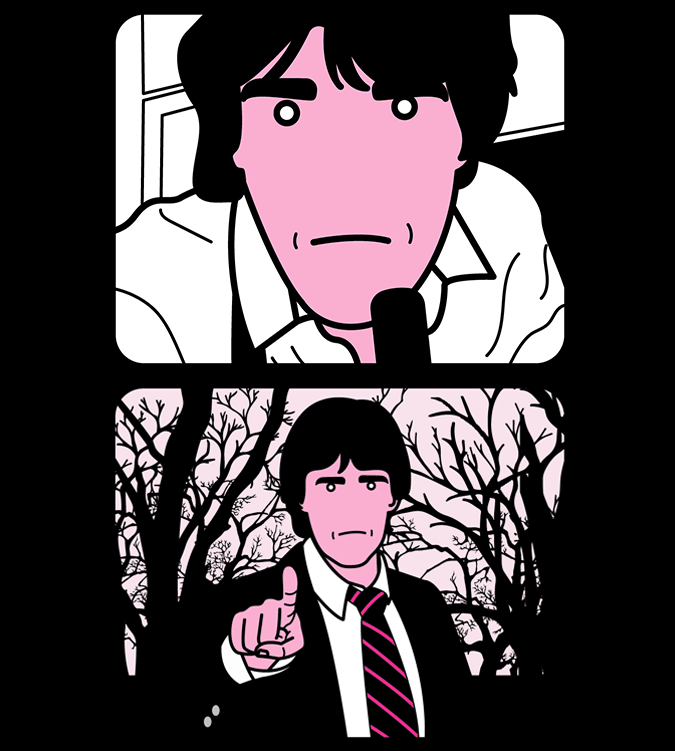
“Only through sickness can we know what true health is,” writes director George Kuchar, whom filmmaker Joe Gibbons quotes in his magnum opus, Confessions of a Sociopath (2005). Gibbons explains, “That’s why I’ve gone to such lengths to develop my neurosis,” one of his many rationalizations for his debauched lifestyle in the 1990s. Confessions was conceived as a real-life version of Samuel Beckett’s one-man play Krapp’s Last Tape, and Gibbons makes fascinating use of the play’s major interests in isolation, self-mythology, artistic failure, and recording technology. In Confessions, we see Gibbons shoplifting hundreds, maybe thousands of books. Sometimes he poses as a critic to get books for free, and later he returns or resells them. It’s how he pays his rent, buys his film. He can’t keep a job, because jobs are, in his words, “boring and stressful” (and maybe also because of the heroin we see him doing on camera). Anyway, by stealing books he can make $1,700 in one day. We also see him filming through people’s windows. Confessions is a documentary.
You have reached your article limit
Sign up for a digital subscription and continue reading all new issues, plus our entire archives, for just $1.50/month.
Already a subscriber? Sign in






